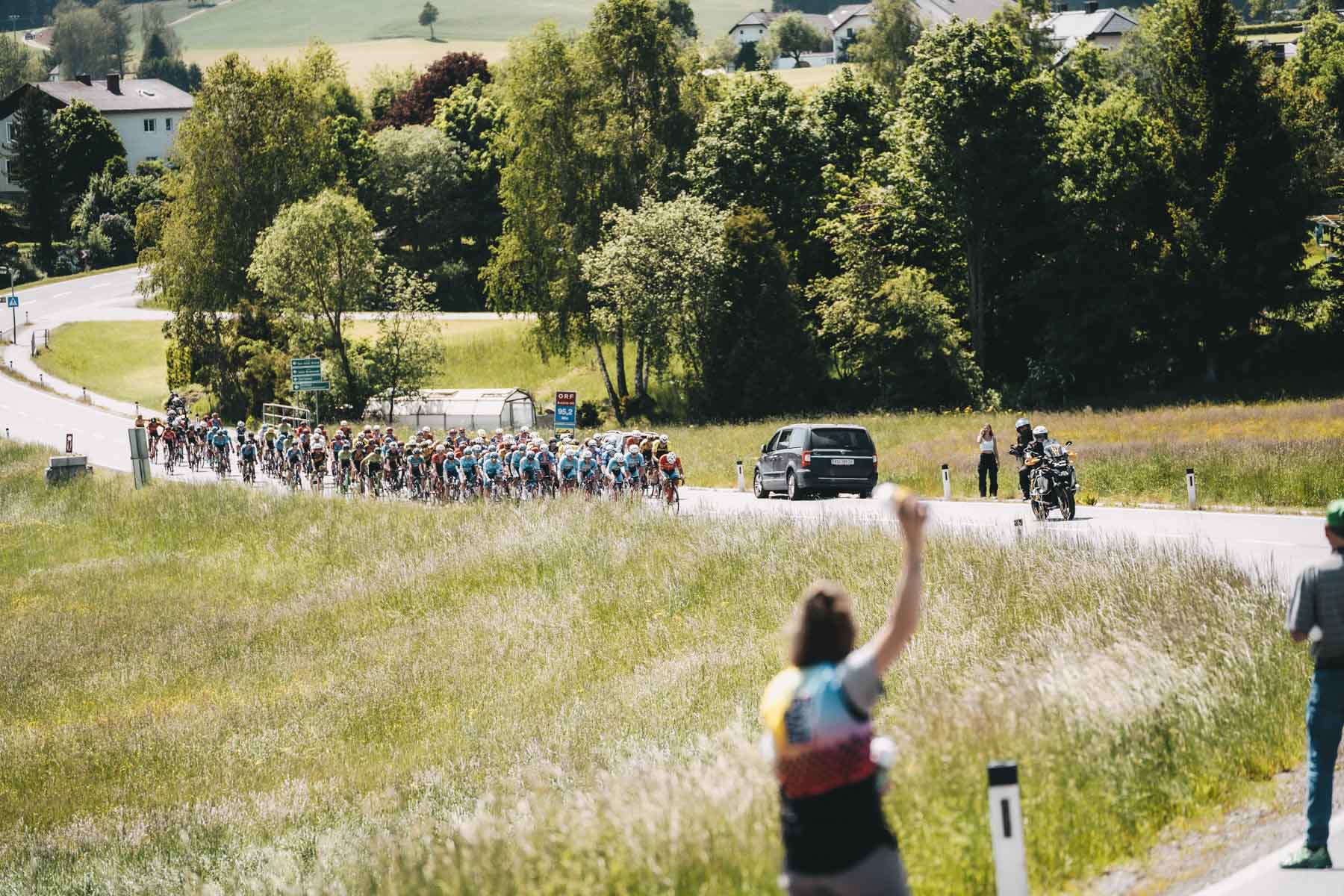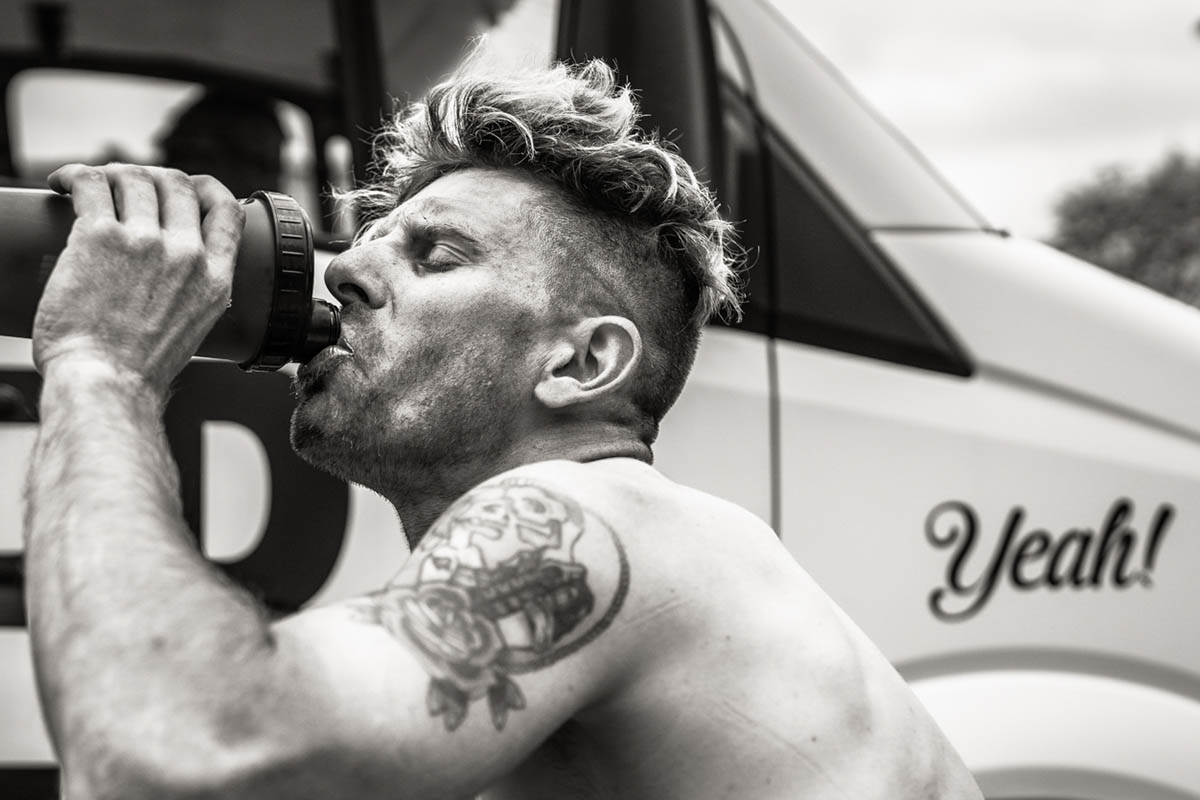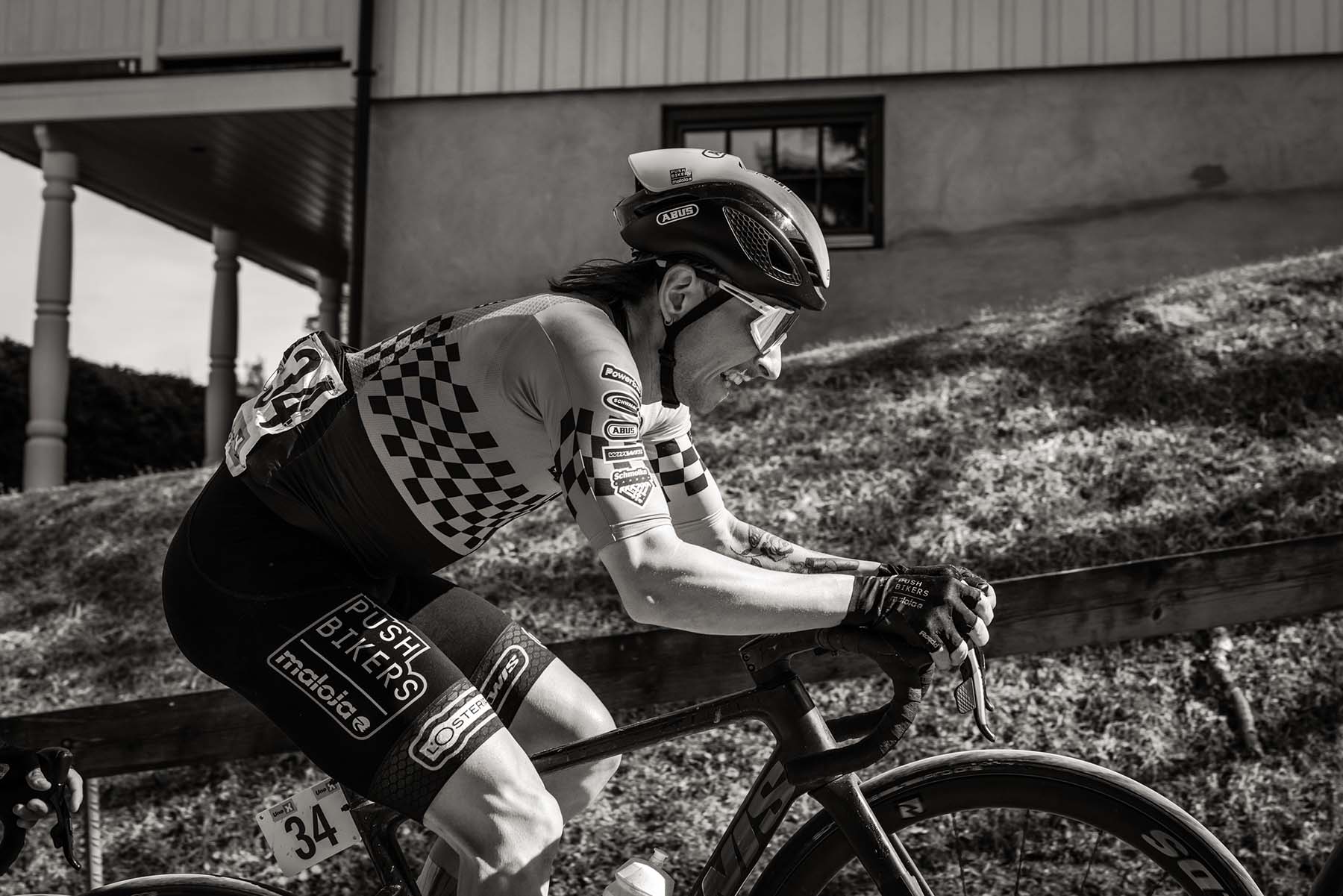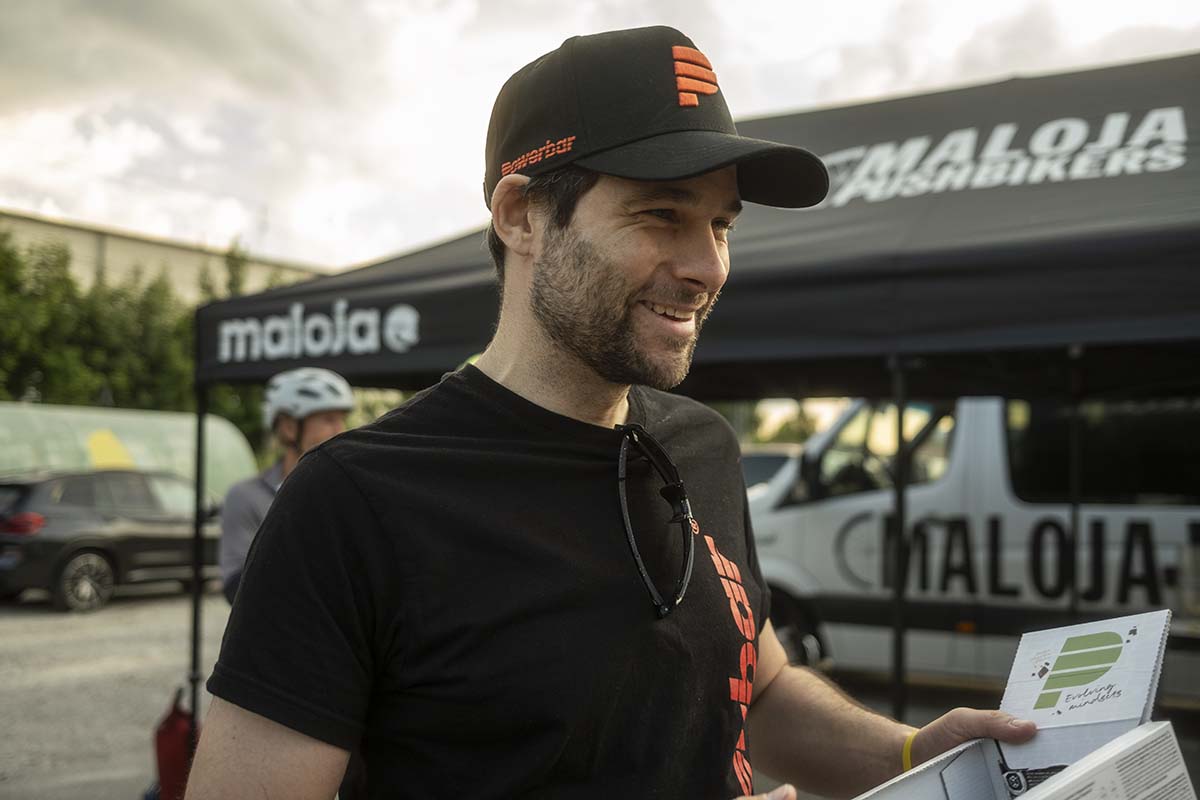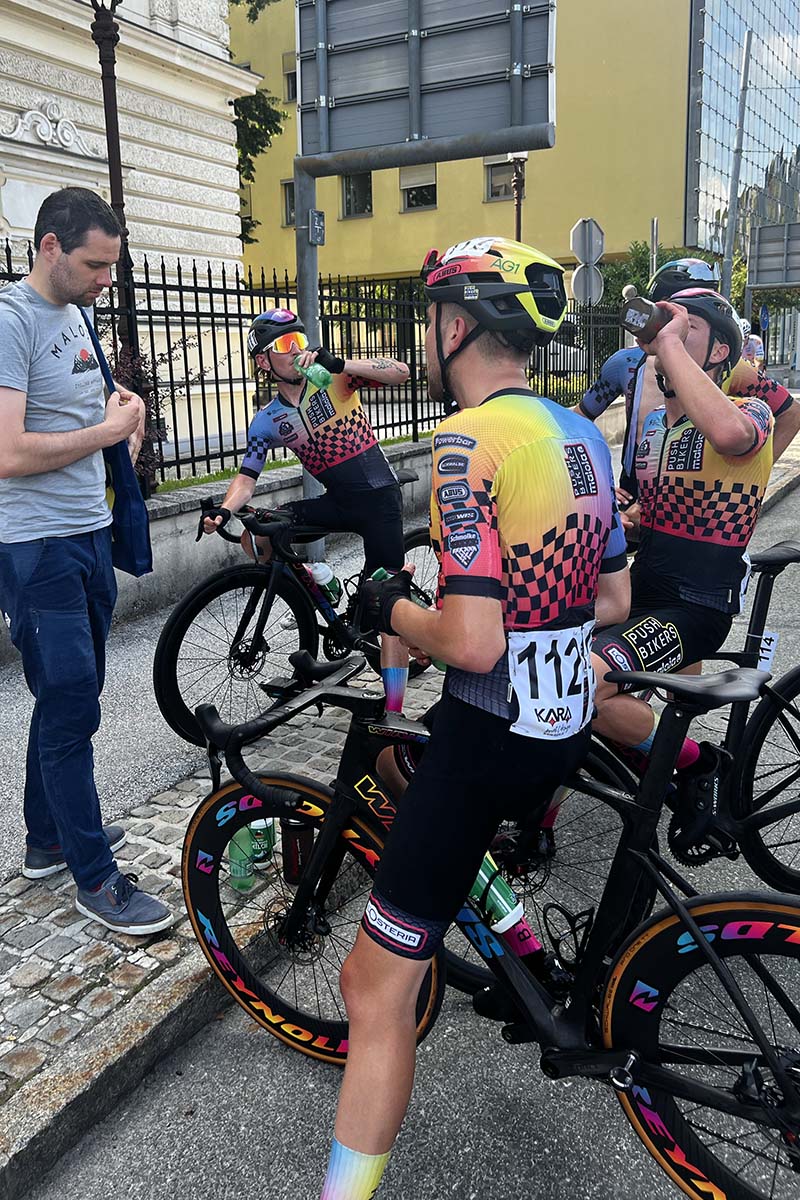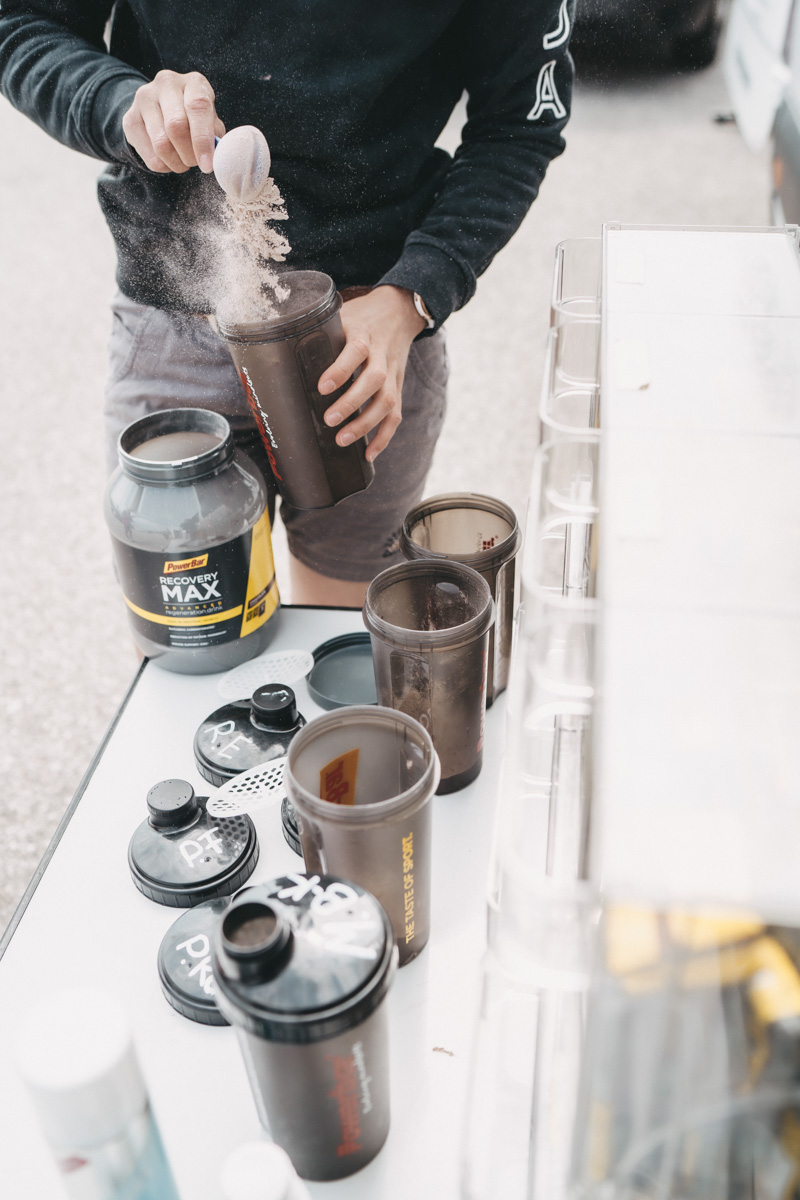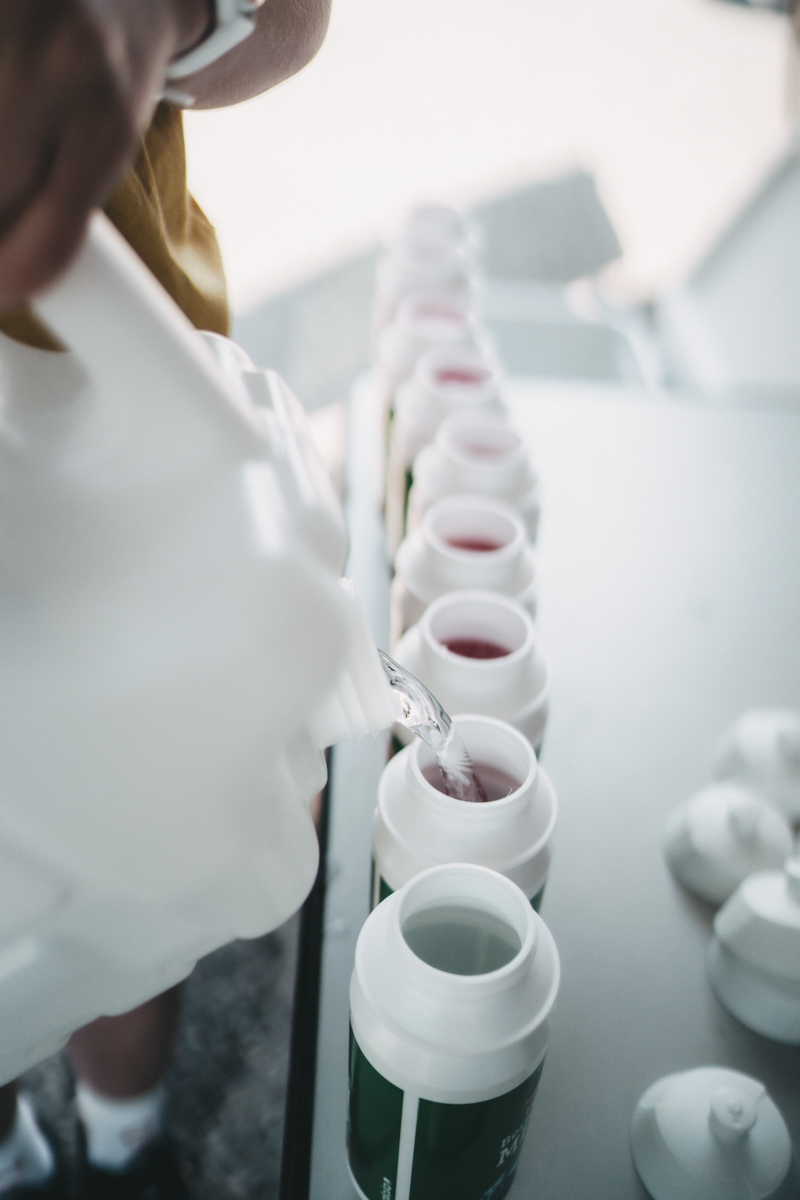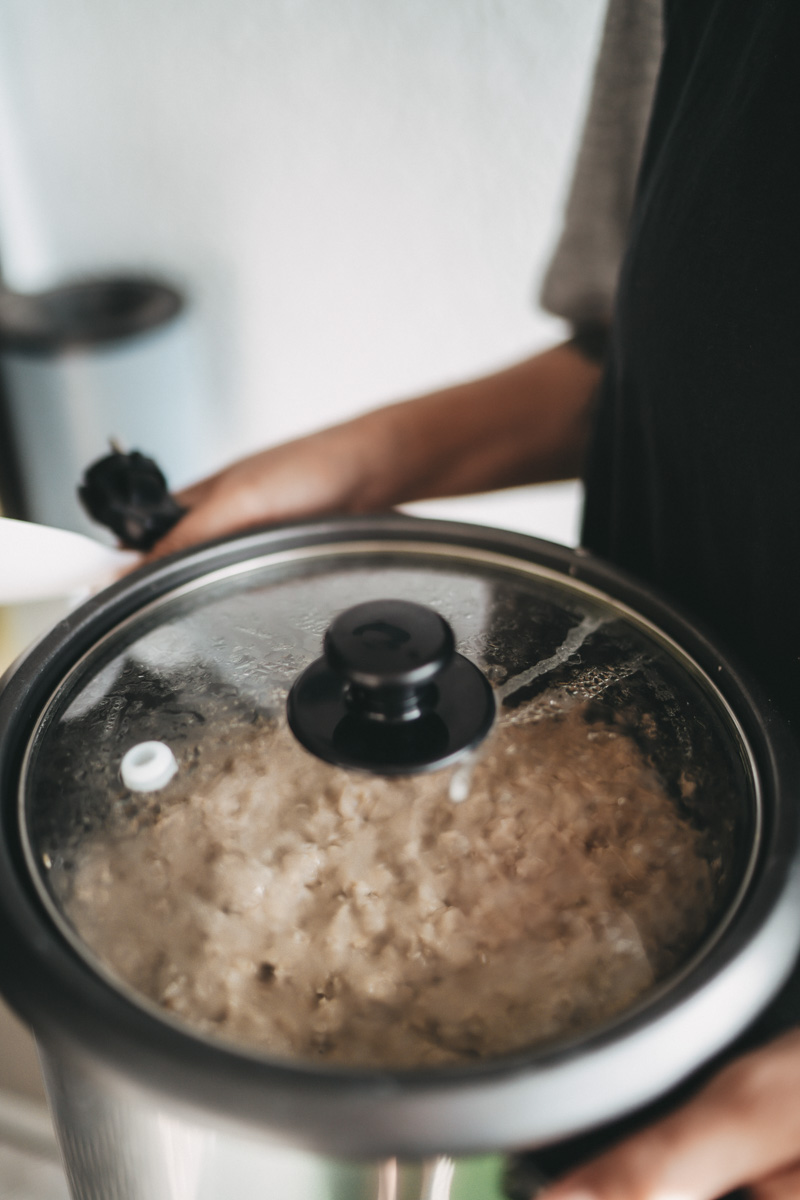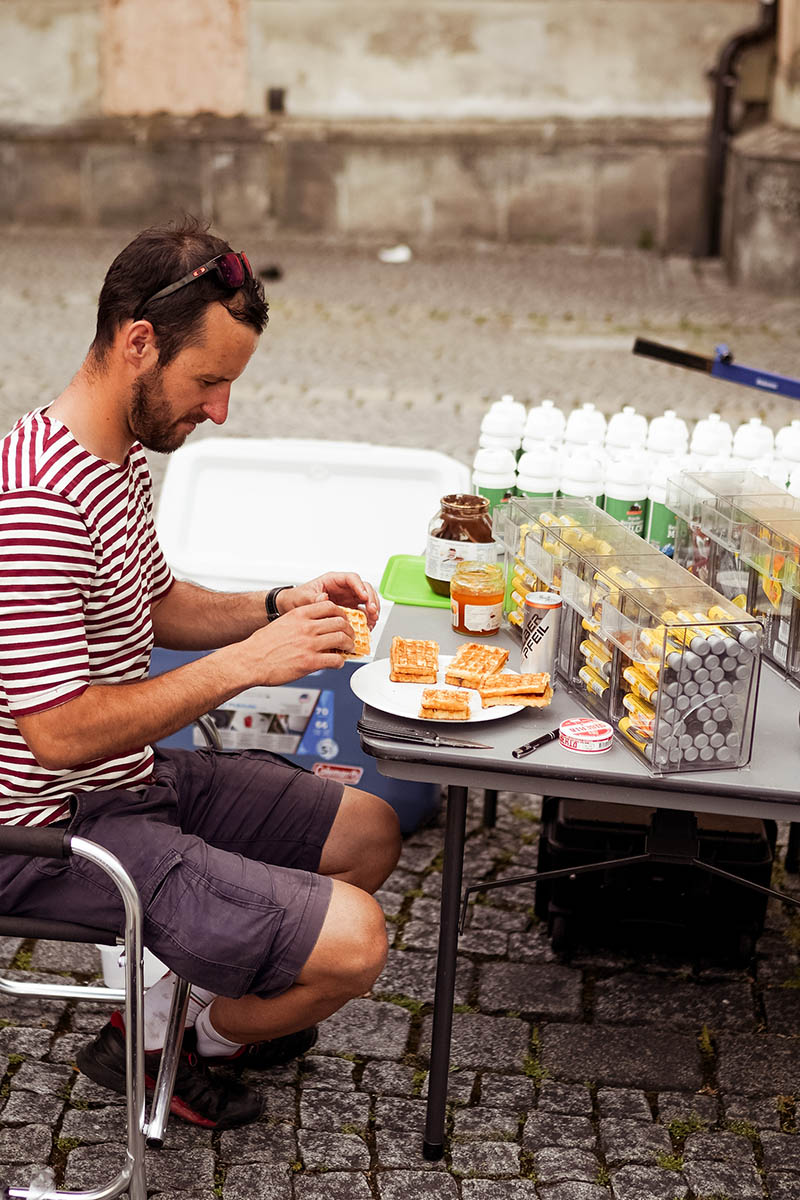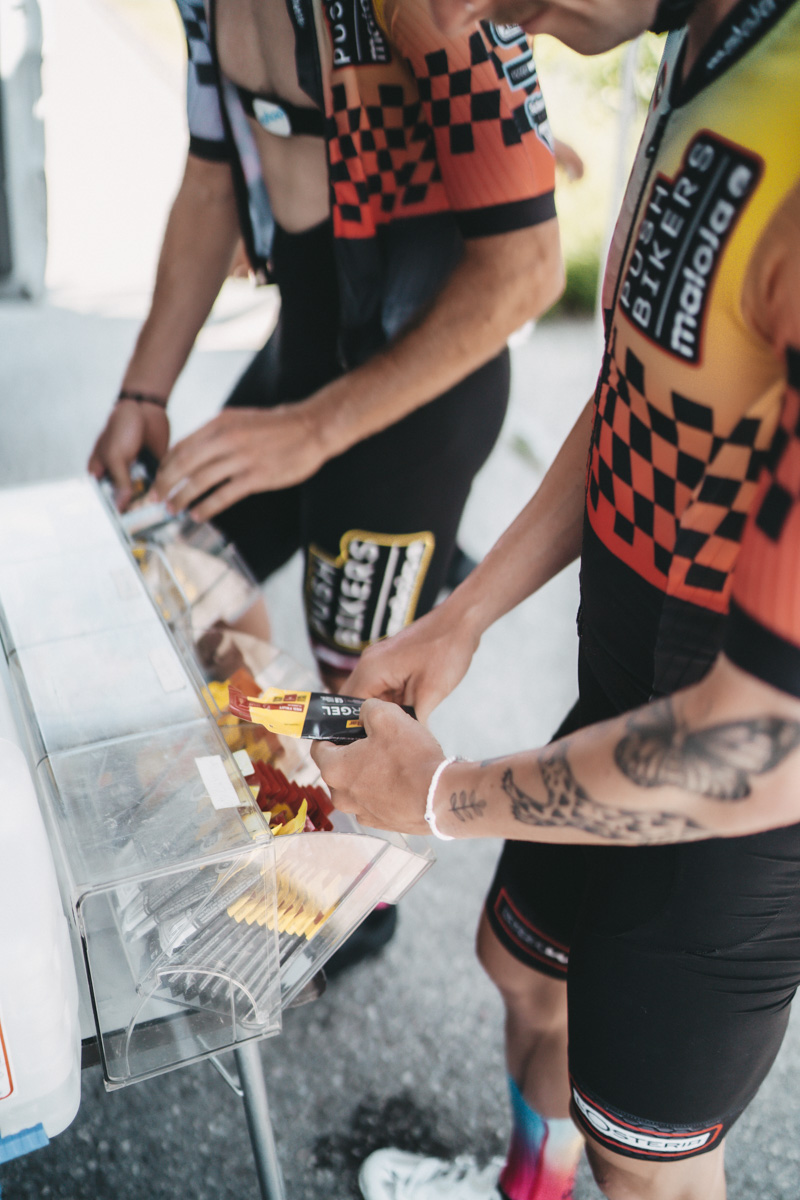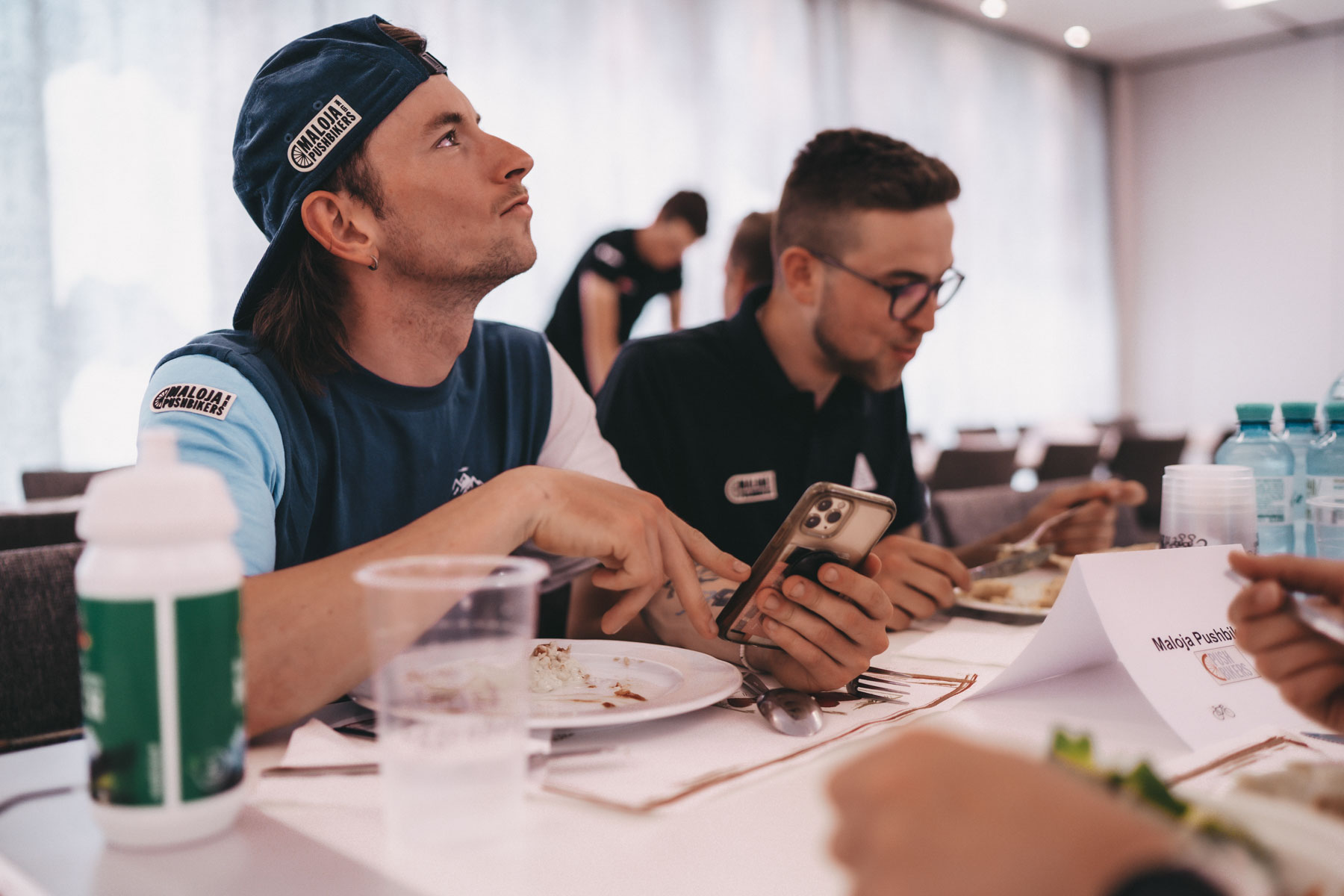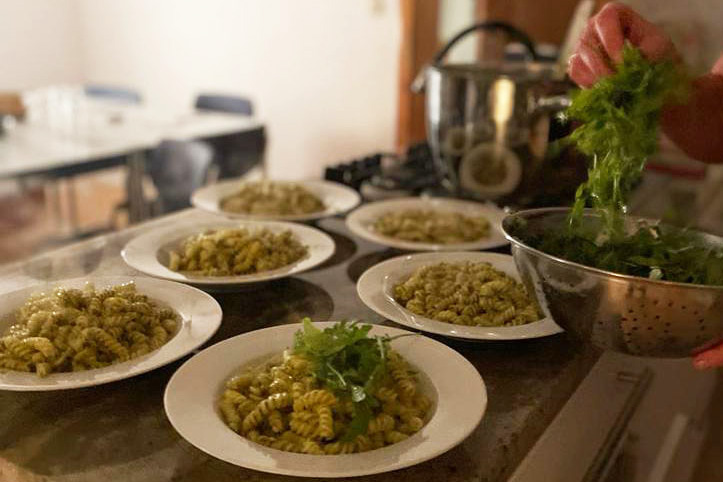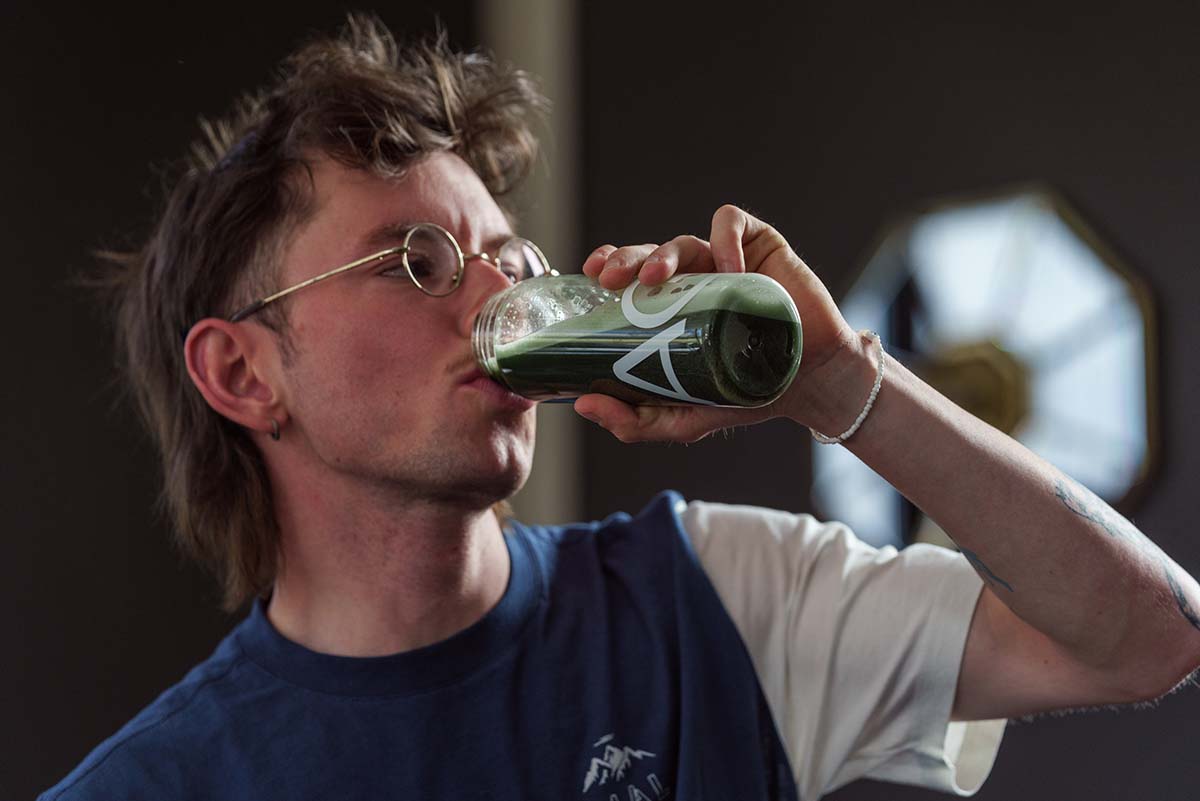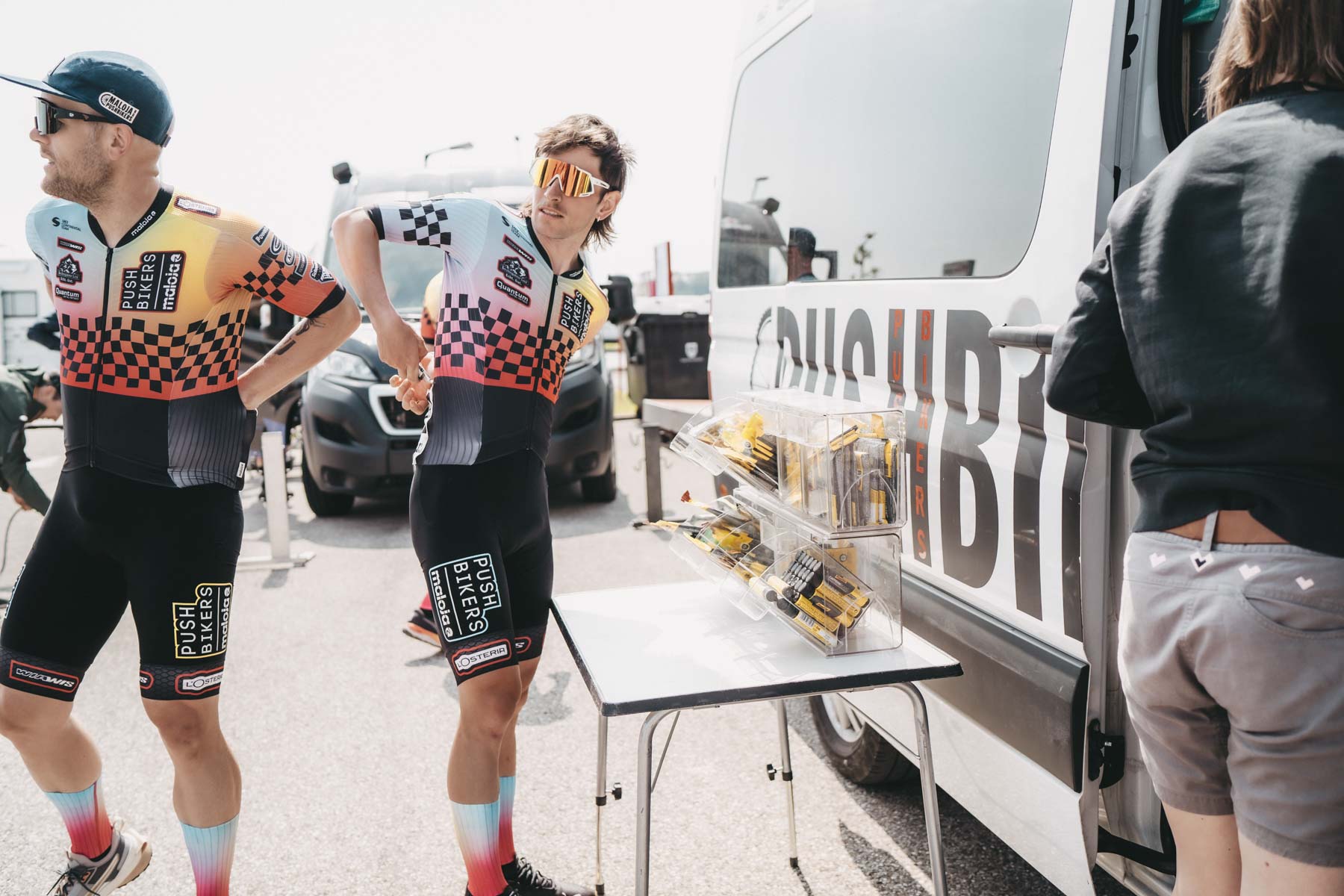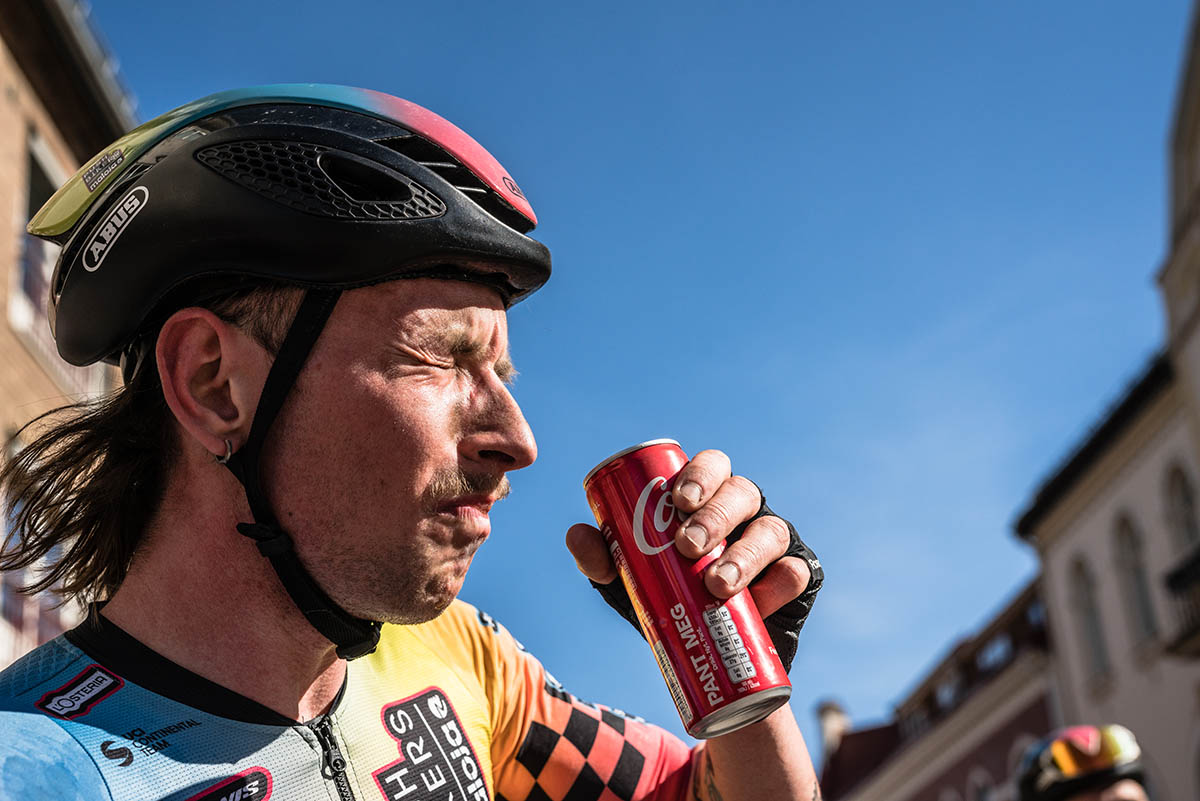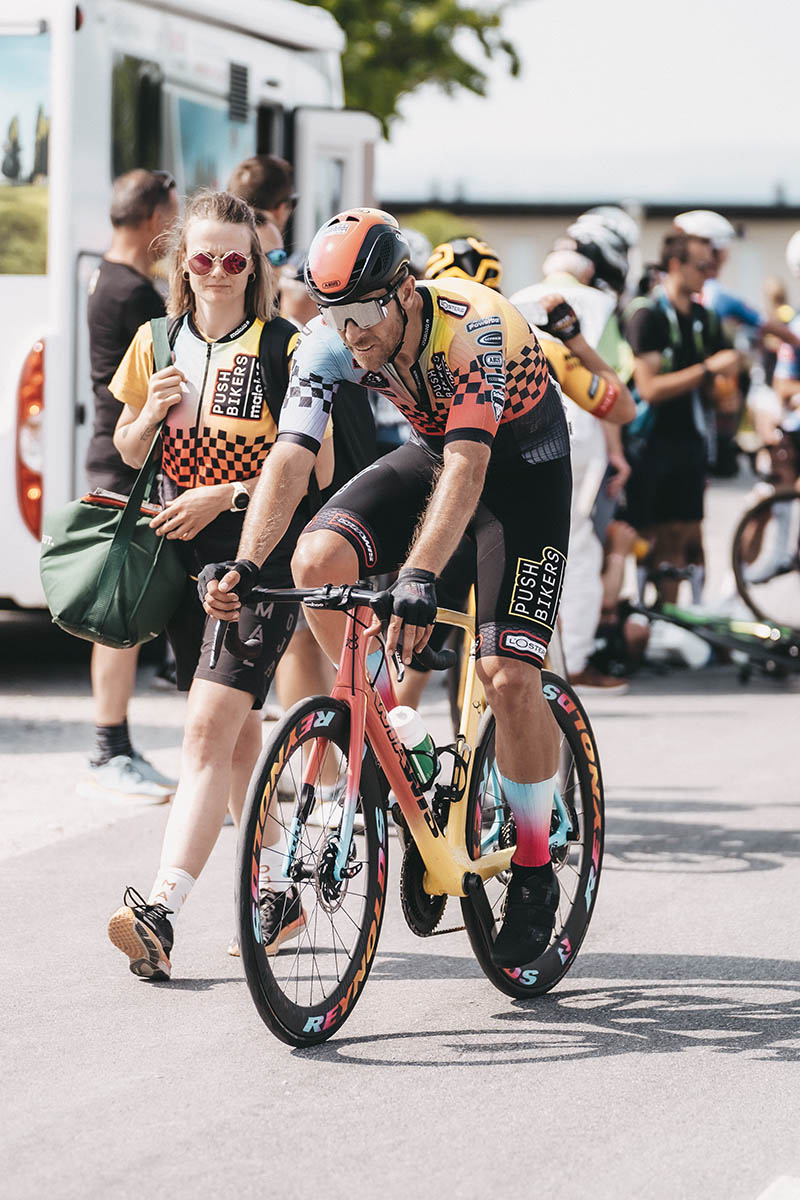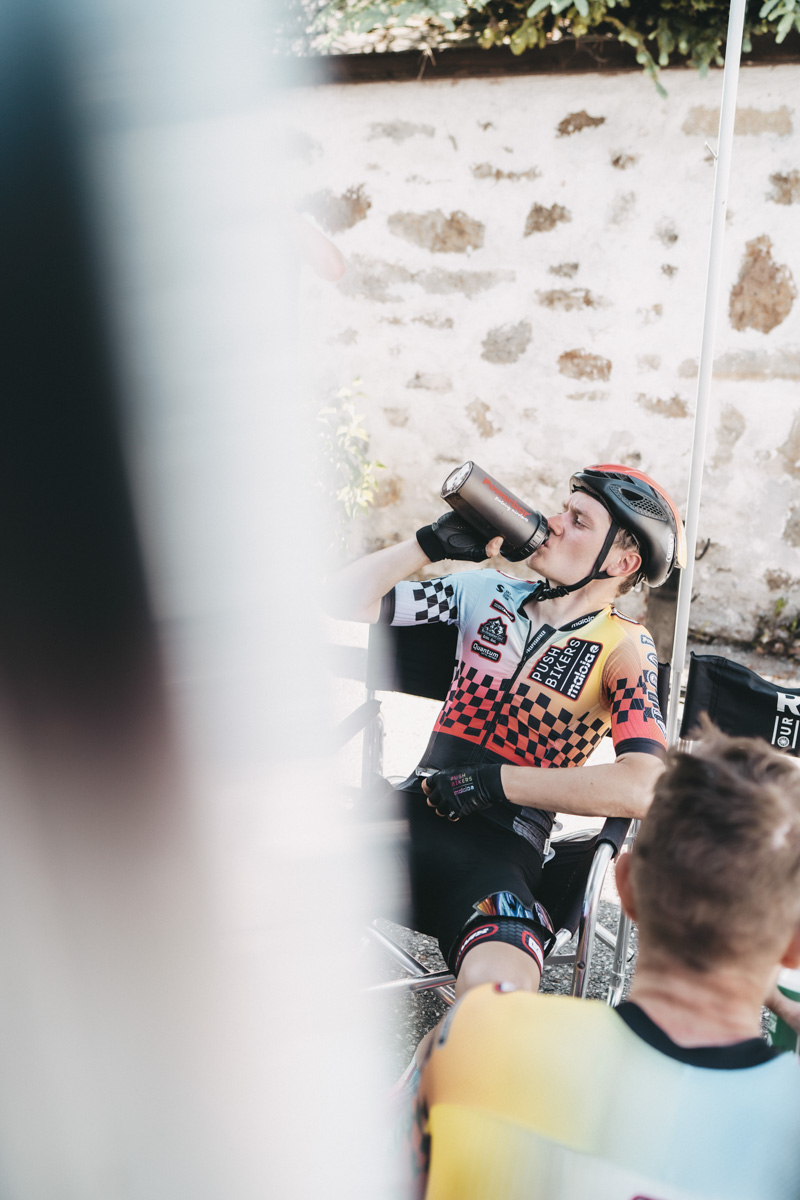Nutrition during racing and travelling is an important factor in maintaining the health and performance levels of our Pushbikers. Spending days on the road travelling all through Europe to and from races is demanding in itself and stresses the body. Add in the extra strain from the actual races, especially during the intense heat of the summer month, the result is huge stress on the body. The ability to cope and recover from these days is the key to consistently perform at a high level.
So how do we deal with nutrition?
A key note by Simon Barr, Performance Nutritionist of the Maloja Pushbikers
Let`s start with a bit of theory: Riders can burn anywhere between 3000-6000 kcal on the bike depending on various factors – such as race profile and length, weather conditions and the individual athlete. This is in addition to the energy they expend during the rest of the day. On travel days, energy expenditure will be a fraction of race days. So, each of those days has slightly different challenges we face from a nutrition and hydration perspective, in order achieve our goal: to keep the team fueled, recovering and most importantly of all: healthy.
The job as Team nutritionist starts well before the riders line up on the start line of the race. Preparation starts in the days leading into one day races or stage races, ensuring the riders are ready to perform and energy stores are topped up. Carbohydrate intake is gradually increased in the last three days, whilst maintaining adequate protein intake and limiting fat and fibre intake to cope with increased volume of food and to not further tax the digestive system. Travel days are especially challenging, with limited opportunity to get a balanced meal. We can offset this by providing packed lunches and keeping snacks available in the form of energy and protein bars. So already before racing we can rely heavily on the support of our longstanding partner Powerbar. Moreover, micronutrient intake can suffer on the days the team is away from home. For this reason, our athletes consume AG1 as part of their daily diet.
On race day we shift the focus of the food intake even more towards carbohydrates, as this is the key nutrient for intense endurance exercise. Carbohydrates provide the necessary fuel for hard climbs and efforts needed to get into the break or bring one back. However, our bodies are limited in the amount of carbohydrates we can store in the form of muscle and liver glycogen. As such the intake prior to exercise and during the race is vital in delivering the performance.
For breakfast we focus on simple but effective foods and try to keep this as similar as possible to what the guys would eat normally at home. Porridge with some fruit and berries and peanut butter, mueslis or bread with jams or honey are the main carbohydrate sources. Alongside this the riders will fill up the fluids with fruit juice, tea and coffee. Some riders also prefer to have rice. For most races breakfast will also double up as the pre-race meal, which is typically consumed 3-4 hours before the start of the race and will contain around 150 – 250g of carbohydrates, while again limiting protein, fat and fibre. For example: Pushbiker Max likes to have eggs and toasts, plus a small portion of oats. “The end of every good racer’s breakfast requires a double espresso!”.
Shortly before the start of the race, small carbohydrate snacks such as jelly shots or energy bars and some water finishes the preparation.
During the race itself most riders will aim to consume 90g with some riders even hitting 120g of carbohydrates per hour. Being able to tolerate such high carbohydrate intake levels also requires training, in this case it’s “training the gut”. During the pre season our riders pick one to two training sessions per week, where they purposefully consume a lot of carbohydrates and practice their individual race nutrition strategy.
Mostly riders will start on energy bars and isotonic drinks and progress to more liquid forms of energy delivery, such as carbohydrate gels and high carb drinks as the race gets more intense and into its later stages. As Pushbikers Max Benz-Kuch points out: “My rule of thumb to hit the 90g per hour is: One bottle and a Powerbar Energize bar or 1-2 gels during every hour of racing. Around 75 minutes before the finish I take a Caffeine Boost containing 200 mg of caffeine for the extra kick to the line.”
To stay on top of hydration, riders will pick up additional bottles of water from staff members in the feed zones as well as dropping back to the team car for additional opportunities to collect water. Depending on the weather, staff members will have to prepare eight to twelve bottles per rider, which is also a task to be done before the race actually starts. The additional sodium in the energy products from our sponsor Powerbar further aids fluid absorption and hydration.
Once the riders hit the finish line, a member of staff will be there to take care of the athlete. First thing they are given is a recovery shake containing around 60g of carbohydrate and 20g of protein to start the refueling of muscle and liver glycogen as well as muscle repair. Especially in the hot races riders love to have a cold can of coke, which we will not deny them. The first few hours of recovery are vital for the riders, more so when they are racing in a stage race and have less than 24 hours before the next start. In these first four hours the riders should take on board roughly 1g of carbohydrate per kilogram of bodyweight per hour, starting with the recovery shake at the finish line. In case of a one-day race we follow a similar plan, but it allows for a little more flexibility.
During longer stage races or training camps, the evening meal will focus on nutrient rich foods as well as plenty of carbohydrates. Rice, pasta, couscous, beans and vegetables as well as lean meat and fish form the basis of these meals. For desert we encourage the riders to eat plenty of fruit with additional yoghurt depending on personal preference. If the team is on the move again, our staff will prepare rice in advance, as well as additional snacks. And yes, sometimes there is also pizza for the riders before driving back to the Pushbikers service course. “I finish every day with a shot of magnesium before going to sleep”, says Max.
